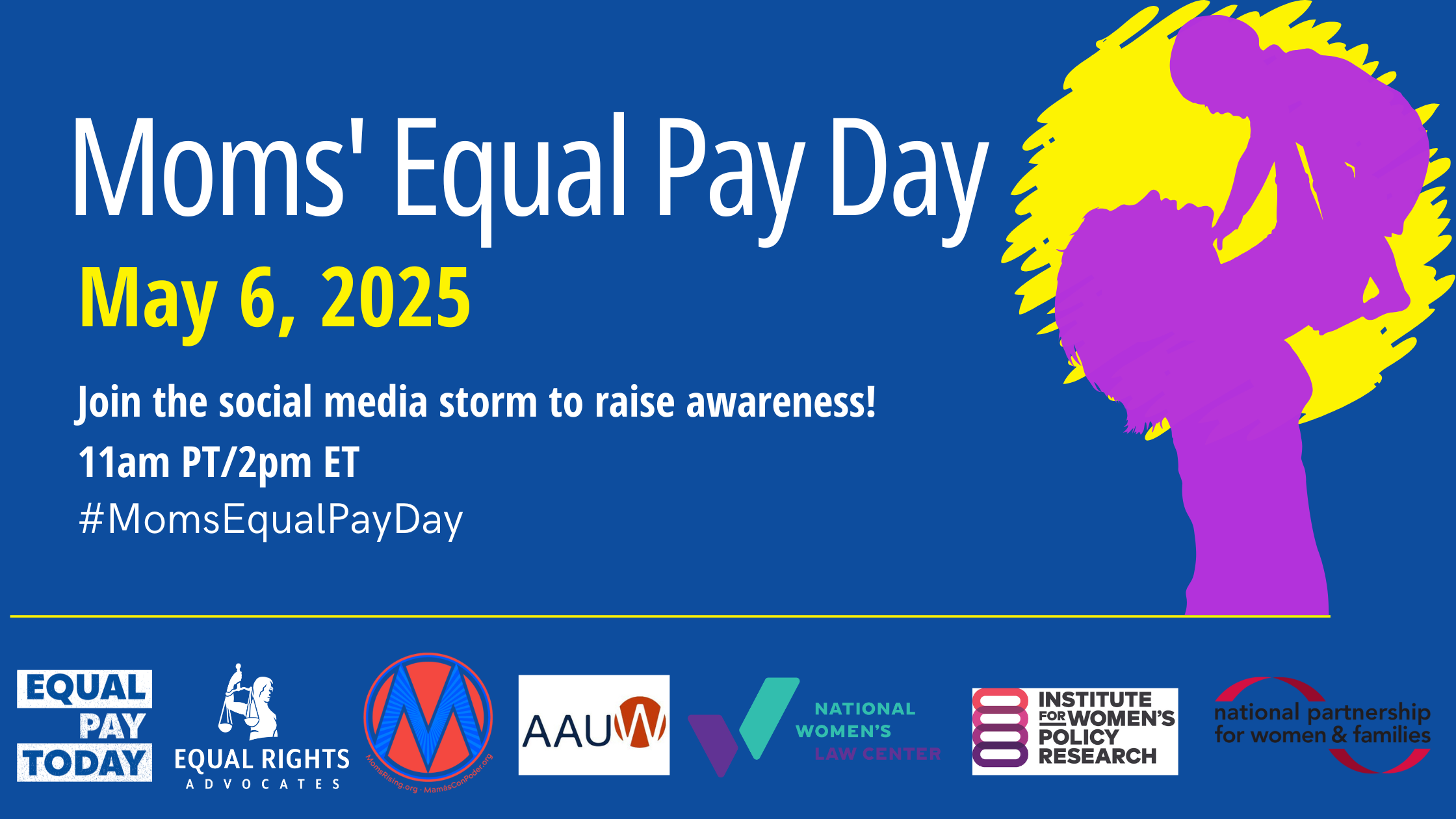Moms’ Equal Pay Day 2025
DATE: May 6, 2025
62 cents for "all earners" (full time year-round + part time and part year)
74 cents for full-time, year-round earners
On Moms’ Equal Pay Day, we shed light on the persistent wage gap experienced by mothers in the workplace. The statistics speak volumes: the wage gap is 74 cents for moms working full-time, yedar-round as compared to fathers working full-time, year-round. But that wage gap widens to 62 cents on the dollar when looking at all working moms, including part-time and part-year workers, as compared to all working fathers.
Women who are both workers and caregivers are deeply impacted by cultural stereotypes and workplaces designed around workers without caregiver responsibilities or who have others performing caregiving work on their behalf. Moms are the backbone of our economy, predominantly shouldering unpaid caregiving work within their families and being valuable workers in the formal economy. Yet, pay discrimination, caregiver discrimination, and a lack of public investment in childcare and other supports, exacerbated by the current administration’s efforts to undermine the legal protections that do exist, continue to limit their pay and opportunities, impacting their economic stability and future economic security.
For this year’s Moms’ Equal Pay Day, we will be using the hashtag #MomsEqualPayDay and our shared calls to action focus on two critical issues that can help support working parents.
We are urging Congress to:
Support and Co-Sponsor the Paycheck Fairness Act. The legislation, currently pending in Congress, would modernize and strengthen the Equal Pay Act of 1963 to better combat pay discrimination and close the wage gap, including by protecting workers from retaliation for discussing pay, banning the use of prior salary history, and codifying pay data collection.
Defend Civil Rights Enforcement Agencies and Offices: Federal agencies and offices, such as the U.S. Equal Employment Opportunity Commission (EEOC), the Office of Federal Contract Compliance Programs (OFCCP) and the Women’s Bureau at the U.S. Department of Labor, and the National Labor Relations Board (NLRB) protect and support the rights of parents and caregivers in the workplace. President Trump took unprecedented actions to fire officials at independent civil rights agencies, layoff hundreds of staff in offices, and undermine enforcement of existing protections. We urge Congress to use all of the tools at its disposal, from oversight to appropriations to the bully pulpit, to restore and defend the critical missions of these agencies.
On behalf of the Moms’ Equal Pay Day Co-Leads,
Equal Pay Today & Equal Rights Advocates | MomsRising/MamásConPoder | AAUW | IWPR | National Women’s Law Center | National Partnership for Women & Families


